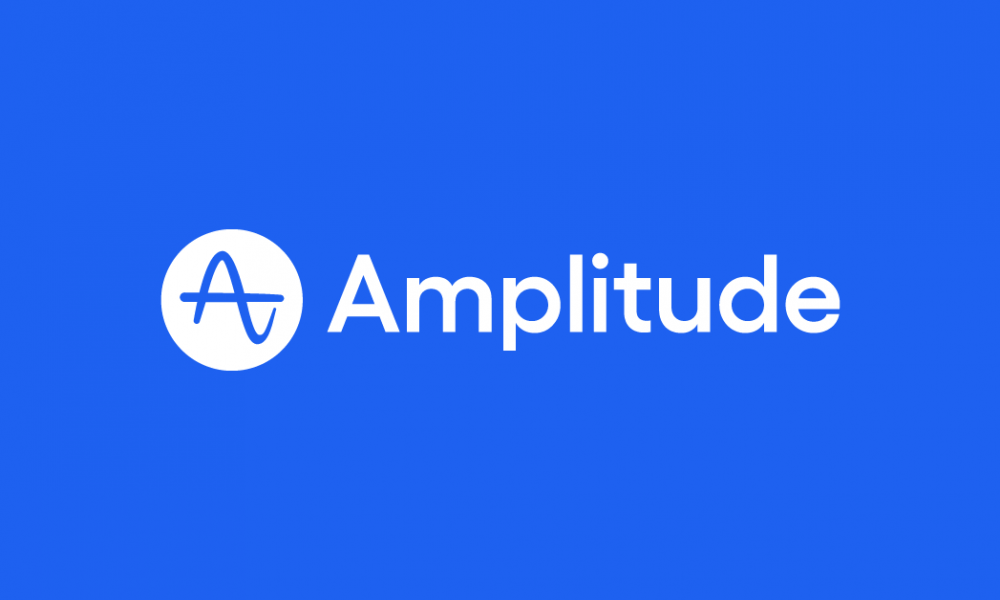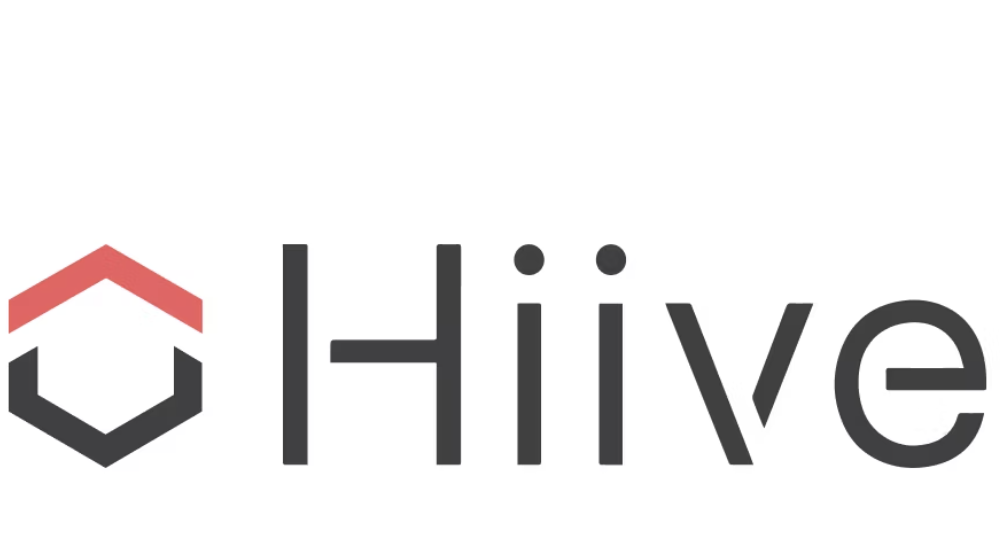Category: Business
Replit’s CEO outlines the roadmap to achieve artificial developer intelligence and secures a fresh $20 million in investment.
Replit, a developer platform company, has recently secured a $20 million investment from Craft Ventures. This development is part of Replit’s ongoing efforts to empower developers with generative AI capabilities, paving the way for a future characterized by Artificial Developer Intelligence (ADI).
Remarkably, this $20 million investment does not constitute the typical funding round for a startup. Rather than aiming to raise additional capital, it serves as a liquidity event benefiting some of the company’s long-term employees. Replit, founded in 2016, had previously raised $97 million in its last major funding round in April, which had propelled the company’s valuation to $1.16 billion. In many early-stage startups, initial employees are often granted equity or shares, with these assets typically remaining non-liquid or non-cashable until the company is either acquired or undergoes an initial public offering (IPO). This new $20 million investment presents an opportunity for Replit’s equity-holding employees to cash out their holdings.
This news follows Replit’s recent announcement of its “AI for All” initiative, which integrated the company’s developer AI capabilities for all its users. Replit has developed its own extensive language model (LLM) known as “replit-code,” which assists with code generation. The company is now gearing up to introduce new initiatives aimed at enhancing developers’ productivity by harnessing the power of AI.
Amjad Masad, CEO of Replit, emphasized that their primary focus is not selling AI but rather offering a vision: to make software development more accessible and programming easier for everyone. Replit’s coding LLM technology competes with various rival technologies, including Github Copilot, Amazon CodeWhisperer, and open-source projects like StarCoder and the Code Llama project. What sets Replit apart is its comprehensive platform that allows developers not only to write code but also to deploy and run it in production. Replit further differentiates itself by fine-tuning its models based on its platform’s unique usage data, providing an advantage in delivering a superior product.
Regarding the role of developers in a world where code can be automatically generated, Masad believes that the need for developers will not diminish anytime soon. He advocates for the concept of the “1000x developer,” who can significantly boost their productivity thanks to AI. Learning to code, he argues, still offers an excellent return on investment, as even a basic understanding of coding can be greatly augmented by AI, enabling individuals to create applications and even full-scale businesses more rapidly.
Despite the power of AI-powered code generation tools, Masad stresses the ongoing need for human involvement in application development, emphasizing that learning how to code remains essential to understand and address edge cases.
Replit is preparing for its upcoming Developer Day event on November 14, during which it will reveal its progress and outline its vision for the future. Among the topics to be discussed is the company’s approach to AI agents, a method for automating tasks and extending AI capabilities. Replit refers to its approach as “Artificial Developer Intelligence,” envisioning a future where AI agents work alongside individual engineers as helpful co-workers, aiding in various development tasks. This focus on Artificial Developer Intelligence aligns with Replit’s goal of making programming and software development more accessible and efficient.
A 35-year-old CEO abandoned his ‘decent’ startup and went on to establish a $1.4 billion business.
In some instances, one must acknowledge that merely being “pretty good” doesn’t suffice. Just ask Spenser Skates and Curtis Liu. Today, these two MIT alumni are recognized as the co-founders of Amplitude, an analytics software company boasting a market capitalization of $1.35 billion and serving over 2,300 corporate clients. A decade ago, their pursuits were vastly different—managing a voice recognition startup named Sonalight.
As Skates, the 35-year-old CEO of Amplitude, describes it, Sonalight was akin to an early version of Apple’s Siri before Siri even existed. In 2011, they established Sonalight, secured a coveted position in Y Combinator’s startup accelerator program, and garnered 500,000 app downloads.
Then came a decision that might appear surprising: they chose to shutter it.
Internally, Skates and Liu recognized that while people initially used the app, they didn’t return to it regularly. “Sonalight was a top-tier idea,” says Skates. “Most ideas are subpar. It was decent, but not the absolute best. It led us to consider seeking a top-tier idea.”
They discovered this idea within their in-house analytics tools, which they’d developed to gain insights into user behavior. “We probably spent about half our time doing that—a somewhat arrogant mistake by engineers, trying to build it,” Skates explains.
However, at Y Combinator, their tools outperformed those used by their peers. Thus, in 2012, Skates and Liu commenced their work on Amplitude, officially launching the analytics platform in 2014 alongside co-founder Jeffrey Wang. By 2021, Amplitude had amassed $336 million in investments, and Skates made the decision to take the company public.
In the following interview, Skates delves into the risks associated with abandoning Sonalight, the process of cultivating exceptional ideas rather than settling for good ones, and why software engineers may not always be the ideal startup founders.
CNBC Make It: What prompted the decision to move on from Sonalight? Did you have concerns about exchanging a decent idea for one that might not work at all?
Skates: When embarking on something new, there is always an element of risk, but the decision wasn’t particularly challenging for us. The key question was: What was the potential success of Sonalight?
At Y Combinator, we had this remarkable, magical demonstration on stage where I placed my phone in my pocket, engaged in a conversation with it, and received responses. This garnered extensive press coverage, a modest amount of seed investment, and around 500,000 downloads. It validated that there was a genuine interest in the product.
However, after nearly a year of development, it became evident to us that the technology wasn’t advanced enough to deliver an outstanding user experience and encourage sustained engagement. It lacked the necessary utility to become a truly sticky product.
We could have persisted for four or five more years and achieved moderate success as a company, but it wouldn’t have been the breakout, massive success we aspired to. Sonalight was not the most promising endeavor for us; there were more impactful avenues to explore.
Once you resolved to change direction, how did you identify the “best” new idea to focus on?
We spent a month engaging in discussions and exploring various ideas. It’s crucial to locate a problem that aligns with your strengths, weaknesses, and interests. Technically, voice recognition was an incredibly challenging problem to solve. It was a probabilistic issue without a clearly defined correct answer.
Analytics, while considered a challenging problem by the average engineer, was relatively straightforward for us because we specialized in algorithms. Creating a distributed data store was well within our capabilities. It represented a solvable problem with a definitive solution. If we could address it, we knew people would want it. Consequently, we decided to embark on that journey, and it proved significantly easier.
We had developed our internal analytics, and what was intriguing was that many other companies were seeking the same insights we were gaining about the customer journey within Sonalight. That realization was a turning point. We spoke to 30 companies, identified a substantial need, and initiated the process of building Amplitude.
Why did you feel the need to pursue “breakout, massive” success? Was there something wrong with aiming for “good enough”?
[After college], I dedicated a substantial amount of time pondering how I could make a positive impact on the world. I reflected on my abilities and realized that I possessed expertise in software development. Consequently, I decided to determine the most significant way I could apply this expertise.
I spent a year working in finance and high-frequency trading while simultaneously attempting to recruit fellow MIT friends to embark on a startup journey. I reached out to classmates, peers, and other acquaintances. Surprisingly, nobody was eager to start a company.
Engineers, it seems, often express enthusiasm for the idea of founding a startup but rarely take the plunge. Many end up at companies like Google, becoming absorbed in their work and never returning to the entrepreneurial path.
Engineers tend to be risk-averse, pursuing a course only if it offers a clear route to success with interim validation. Conversely, startups and entrepreneurship entail embracing uncertainty and taking on personal risk. There are no supervisors or teachers providing reassurance. It’s either you have something people desire or you don’t. One must possess the determination to persist through the uncertainty and recognize the potential inherent in their pursuits.
An AI startup sparked a “clash of the titans” on the television show ‘Shark Tank,’ ultimately receiving a generous offer of $300,000 from Mark Cuban and Michael Rubin.
Maurice Bachelor is on a mission to reshape public perceptions of AI bots, and he found formidable allies in billionaires Mark Cuban and Michael Rubin.
In a recent episode of ABC’s ‘Shark Tank,’ Bachelor presented his Los Angeles-based venture, Bot-It, alongside Joel Griffith, his co-founder and head of growth. Bot-It is a website and mobile app harnessing AI to streamline online tasks such as appointment scheduling and restaurant reservations.
The platform offers a “pro” subscription, enabling users to gain an edge in sneaker release lotteries and secure concert tickets in a matter of seconds, explained Bachelor, who serves as the company’s lead software engineer. This aspect of their business generated some controversy, as bots have disrupted the consumer experience in various industries, particularly in the domains of sneakers and live events.
Michael Rubin, CEO of sports retailer Fanatics and a guest judge on the show, acknowledged the magnitude of the issue, stating, “We have probably billions of dollars of products that bots try to buy from us each year… Bots come to get everything.”
Kevin O’Leary chimed in, asking, “What does it say about us if we’re supporting this, for those that think you’re cheating?”
In response, Bachelor and Griffith, who sought $150,000 in exchange for a 10% equity stake in their company, contended that their technology actually empowers individuals to outmaneuver cheaters by pitting real people against faceless bot armies.
Griffith emphasized, “We want to help change the perception of bots amongst consumers. Bots aren’t always the bad guy. You can have one, too.”
Rubin resonated with their argument, noting that most of the bots on Fanatics’ platform are large-scale attempts to hoard new products, often with the intent to resell them on third-party platforms at inflated prices. Arming consumers with bots could level the playing field, offering regular people a fair chance to purchase items at reasonable prices.
“I’d rather disrupt myself than have someone else disrupt me,” Rubin remarked.
Cuban was the first investor to make an offer, drawn in by Bot-It’s AI platform that can accomplish tasks rapidly. Cuban offered $150,000 in exchange for a 20% equity stake.
Rubin followed suit, asking Cuban if he’d welcome a partnership, to which Cuban replied, “No, I like this. I want these guys all to myself.” Rubin proposed $50,000 for a 15% share of Bot-It, a higher valuation than Cuban’s offer. O’Leary commented, “It’s a Shark fight. It’s the battle of the billionaires.”
Caught in a dilemma, Bachelor and Griffith urged Cuban and Rubin to make a joint deal. Ultimately, the two billionaires reached an agreement, offering $300,000 for a 30% stake in the company. After some deliberation about the equity share, the Bot-It team accepted the deal.
Bachelor expressed his enthusiasm, saying, “This is the most important day of the Bot-It life. To have both of those Sharks on our team right now is going to take us to the next level.”
Following the monumental Microsoft agreement, leading gaming companies continue to possess a substantial $45 billion in cash reserves.
According to a recent report from venture capital firm Konvoy, publicly traded gaming companies are holding a substantial $45 billion in cash and cash equivalents, potentially paving the way for further consolidation in the $188 billion video games market. Key players like Activision Blizzard, Electronic Arts, Singapore’s Sea, Japan’s Nintendo and Bandai Namco, South Korea’s Nexon, and China’s NetEase collectively possess $45.1 billion in liquid assets, as per Konvoy’s analysis of their latest public reports. This financial strength positions them to consider acquisitions aimed at expanding their intellectual property and product offerings.
In particular, these gaming companies are focusing on strategies to enhance gamer engagement, such as live-service games that provide ongoing content updates and paid subscription packages offering free games and access to cloud gaming. This approach allows players to enjoy games via the cloud, eliminating the need for traditional downloads.
Overall, publicly listed gaming companies experienced a successful year in 2023. Konvoy notes that the VanEck Video Gaming and eSports ETF, which tracks the MVIS Global Video Gaming & eSports Index, has risen by 20% year-to-date, surpassing the S&P 500 index’s 12% year-to-date growth.
Additionally, Big Tech giants like Amazon, Microsoft, Google, Apple, Meta, Netflix, Tencent, and Sony are well-positioned with a combined $229.4 billion in available cash for potential gaming-related deals.
Konvoy anticipates that the recent Microsoft-Activision deal, where Microsoft acquired Activision Blizzard for $69 billion, will stimulate further merger and acquisition activity in the gaming industry, potentially giving rise to a new generation of gaming companies. This move strengthens Microsoft’s presence in cloud gaming, which is set to open doors for emerging game developers, infrastructure companies, and gaming platforms.
Venture capital investment in the video game sector faced a 64% year-over-year decline in the third quarter of 2023, signaling a slowdown compared to the industry’s booming period in 2020 and 2021. Gaming startups raised $454 million globally during this period, down 9% quarter-over-quarter and more than 64% from the same period a year ago. Nevertheless, Konvoy expects a brighter outlook for gaming venture capital and startups in the coming year as investment conditions improve. Although funding for gaming companies is returning to a sustainable new normal, it is expected to continue at a similar pace for the next few years.
The gaming industry has faced challenges due to macroeconomic conditions, including high inflation and rising interest rates impacting consumer discretionary spending. While 2020 witnessed robust growth in the gaming sector, 2022 and 2023 have been more challenging as central banks raised interest rates. Despite these economic headwinds, the global player base continues to grow, reaching 3.381 million players worldwide, according to Konvoy.
The video game market remains substantial, with projected sales of $188 billion in 2023, a 3% increase from the previous year. Long-term growth prospects for the industry look promising, with Konvoy forecasting a compound annual growth rate of 9% over the next five years, leading to overall sales of $288 billion by 2028. This projection suggests that the gaming industry will continue to thrive in the years to come.
Hiive secures $4.2M for its private tech company shares marketplace.
Vancouver-based startup Hiive has secured $4.2 million in fresh capital for its innovative marketplace, facilitating the trading of shares in privately held venture-backed firms on the secondary market. Established in 2021, Hiive’s mission is to “unleash the full potential of the private markets” by creating an automated platform for private share transactions. It utilizes bid, ask, and trade prices provided directly by verified buyers and sellers on its platform to deliver precise, real-time valuations for late-stage startups, mirroring the methodology employed in public market valuations.
This funding infusion coincides with a period when numerous late-stage technology companies are choosing to remain private for extended periods, due to a general slowdown in the tech market. This has led to an increased demand from investors and employees seeking to liquidate their shares.
Salil Deshpande, General Partner at Uncorrelated Ventures, remarked, “Many funds are active secondary buyers, and with IPO markets being choppy or companies just choosing to stay private longer, there are many more secondary sellers.”
Hiive’s platform allows users to monitor the fluctuation of a private company’s stock, similar to public stocks. As of the previous month, the platform hosted open offerings valued at approximately $1.9 billion, with over 570 companies actively listed, including Seattle-based startups Outreach, Icertis, and Convoy. Hiive boasts more than 12,000 users, including over 1,000 institutional members.
Over the past year, the startup has witnessed substantial growth, increasing its rate and volume of transaction completion by around six times. It competes with other private market share platforms like EquityZen and Birel.
Hiive generates revenue by imposing a minimum fixed dollar amount and a commission on transactions facilitated through its platform.
CEO Sim Desai, formerly a Managing Director at Toronto-based investment bank Setter Capital, leads Hiive. The company was co-founded by Prab Rattan, Stuart Eccles, and Sarah Huggins. In the course of its expansion, Hiive has expanded its workforce from six employees at the beginning of 2022 to a current count of 45.
Uncorrelated Ventures spearheaded the funding round, with contributions from Splash Capital, Harmony Venture Partners, Hack VC, Agmen Capital, and Renaud Laplanche, co-founder of Lending Club. Hiive has disclosed a post-money valuation of $77 million.





